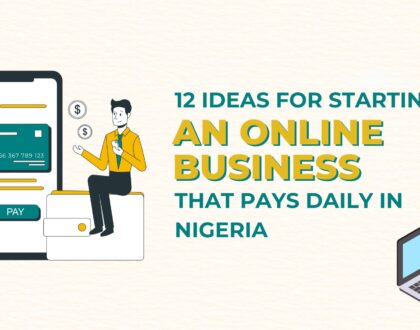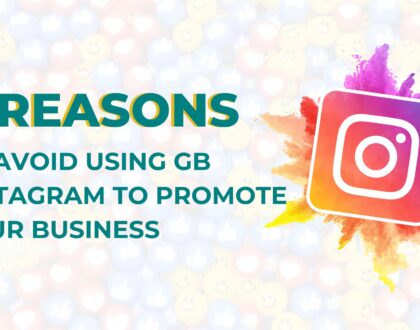How Much Does Starting A Business In The UK Cost In 2023

Are you thinking about starting a business in the UK in 2023? It’s important you have a clear understanding of the financial expenses involved. While entrepreneurship is thrilling, making informed decisions about the costs of starting a business in the UK is essential.
Starting a business in the UK requires careful financial planning. Consider incorporation fees, office address fees, accounting, licenses, insurance, website development, and marketing investments.
Our guide provides a comprehensive breakdown of these costs for 2023, helping you plan your budget effectively and make informed decisions.
Here we go.
1. Costs that go into forming a company
a) Incorporation Fee
Registering your business as a private limited company in the UK gives you limited liability protection and the option to raise capital by selling shares.
To register online, provide details such as company name, registered office address, director and shareholder information, and pay a £12 fee. Companies House will review your application, and if approved, you’ll receive a Certificate of Incorporation.
Additional charges may apply for expedited processing or supplementary services. The incorporation fee is necessary for the legal framework and benefits of operating as a limited liability company.

b) Same-Day Incorporation
Companies House offers a same-day incorporation service for an additional fee if you need to register a private limited company quickly. You must have all required documentation and information ready before submitting your application and using a third-party service provider.
The exact cost and timeframe vary depending on the urgency level and service provider. Same-day incorporation is optional, and most businesses choose the standard registration process to save costs.
However, if time is of the essence, research different service providers and compare their fees and services before selecting a reputable and efficient company registration agent.
2. Registered Office Address
A registered office address is required for legal documents and correspondence when registering a company in the UK. A registered office service can provide a physical address for those without one or who want to keep their residential address private.
Prices range from £50 to £150 per year and vary based on location and services offered. Consider the provider’s reputation, reliability, and additional services when choosing a registered office service.
It is also essential to keep your operational address up-to-date for day-to-day operations.
3. Company Secretary (Optional)
Although not mandatory by law, having a company secretary in the UK can provide benefits such as meeting regulatory obligations and efficiently handling administrative duties.
The duties of a company secretary include fulfilling statutory obligations, overseeing corporate governance, and performing administrative tasks. The fees charged by a company secretary may fluctuate based on the extent of their involvement and the intricacy of the company’s operations.
Establishing expectations and costs with a company secretary before hiring them is crucial. A competent company secretary can be highly beneficial for maintaining compliance and effective corporate governance.

4. Accountancy and Bookkeeping
Managing your business’s finances is essential for success. Hiring an accountant or bookkeeper can help with bookkeeping, financial reporting, tax compliance, and strategic advice.
Costs vary based on complexity, with essential bookkeeping services ranging from £20 to £100 per month and accounting services from £100 to £500 per month. The size and complexity of your business impact costs, and outsourcing can be cost-effective for smaller businesses.
Consider additional services accountants offer and negotiate fees based on your business’s needs.
5. Business Bank Account
Separating personal and business finances is crucial for any business owner. To do so, opening a business bank account is a must. Different banks offer various types of accounts with distinct features and fees.
For startups, some banks provide free or low-cost options. Depending on the bank, monthly fees can range from £5 to £10, and transaction charges may apply. Additionally, banks may offer extra services with prices attached.
Comparing the offerings and negotiating can help you find your business’s most suitable banking solution.
6. Licenses and Permits
Conduct thorough research on the licenses and permits required for legal operation and regulatory compliance is crucial before starting a business.
These may include health and safety licenses (HSE), environmental permits (EA), financial conduct authority (FCA), HM Revenue and Customs (HMRC), and other documents depending on your local authority.
Obtaining these licenses may involve ongoing fees, and costs may vary. We highly advise seeking the assistance of an expert and allowing adequate time for obtaining the necessary licenses and permits.
Adhere strictly to legal and safety standards and industry-specific regulations to ensure the success of your business.
7. Insurance
As a business owner, it is essential to comprehend the significance of insurance in mitigating risks and safeguarding finances.
Various factors influence the insurance cost, including the type of business, industry, size, location, coverage needs, risk evaluation, and optional add-ons.
The starting price for basic coverage is approximately £100 annually, but expenses can escalate significantly for businesses with more significant risks, specific requirements, or additional coverage options.
It is advisable to consult with professionals to evaluate your needs and get accurate estimates.

8. Intellectual Property (Optional)
As a business owner, safeguarding your intellectual property with trademarks, patents, copyrights, and designs is crucial. The expenses for registration may fluctuate based on the type and extent of protection needed.
Trademarks come for £170-£300 per class, while patents are intricate and require a patent attorney’s aid. Copyrights begin at £42 for online registration, and designs are priced at £50-£70 per design. It’s essential to consider that renewal fees are necessary to sustain protection.
To accurately calculate expenses and guarantee sufficient coverage for your business, it is recommended to consult with a professional.
9. Website and Online Presence
Any business needs a website in this digital era. Simple website design can begin from approximately £500, whereas e-commerce websites can range from a few thousand pounds to tens of thousands.
Hosting and domain registration fees are also important considerations. Websites require regular maintenance to ensure they function correctly and remain secure.
The costs mentioned are general estimates, and actual website development costs can vary significantly based on your business’s specific needs and the expertise of the web development professionals you engage.
10. Marketing and Advertising
Marketing and advertising are essential for promoting your business. Costs can vary depending on your objectives, target audience, industry, and marketing efforts.
Consider your goals and strategy, target audience, online advertising, content creation, traditional advertising, and whether to handle marketing in-house or with an agency.
Set a budget aligned with your goals and continuously monitor performance to optimise costs and ensure a positive ROI.

Wrap up
Wow! It was worth it, right? Good job completing our guide to starting a business in the UK in 2023! Understanding the costs involved is crucial for success. Our guide offers insights into financial considerations, from incorporation fees to marketing investments.
Seek guidance from professionals and build a support network. Use the knowledge to make informed decisions, secure funding, and create a solid financial plan.
Embrace the journey and let your entrepreneurial spirit soar! Best of luck with your venture!
Want to learn more about launching a business in the UK and building an MVP?
Learn about the basics of launching a business in the UK as an international entrepreneur with our free six steps to building a minimum viable product in days.
Stay tuned to this page for more business nuggets like this, and watch out for our business education, financing and mentor-matching platforms launching soon.
We’ve also built a community of entrepreneurs who are either turning their passions into businesses or already building their empires. Click here on our waitlist to know when we will launch this.
Recommended Posts

How to Grow Your Local Business Using Google My Business App
January 20, 2025

12 Ideas For Starting An Online Business That Pays Daily In Nigeria
October 31, 2024

5 Reasons To Avoid Using GB Instagram To Promote Your Business
October 17, 2024
